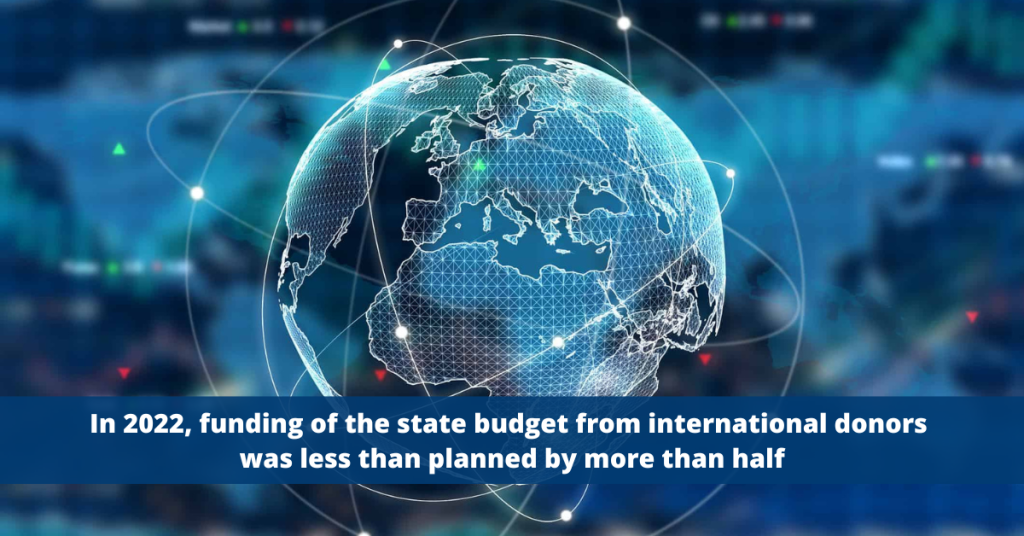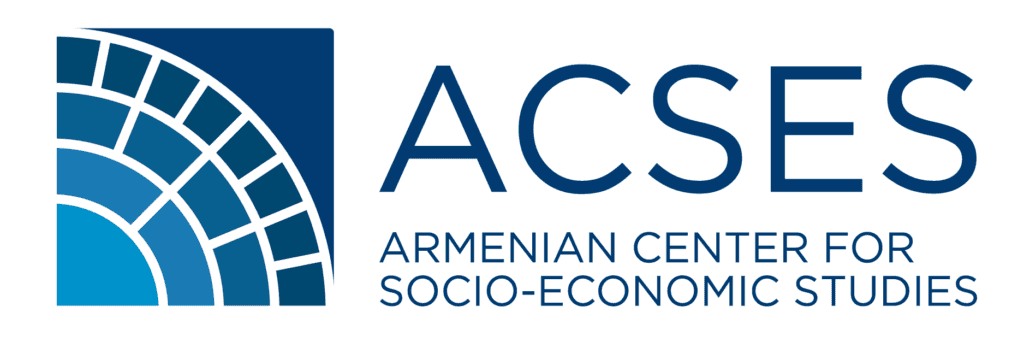
Initially, the government planned to attract AMD 129.4 billion in the form of loans and grants from foreign countries and international organizations (hereinafter referred to as international donors) for the co-financing of 28 budget-targeted projects in 2022. Due to a number of circumstances, only 44.1% of the expected funding from international donors in terms of budgetary target programs was fulfilled.
The role of international donor funding for the RA state budget
According to the 2022 state budget, it was initially planned to attract AMD 129.4 billion from international donors, of which AMD 92.6 billion as loans and AMD 36.8 billion as grants. Those funds, combined with AMD 25.9 billion in domestic co-financing, should have been directed to the implementation of 28 programs. 5 out of 28 programs were expected to receive only a grant, 11 – only a loan, and 12 – both a loan and a grant. The budget performance analysis shows that 6 of the 28 initially planned programs did not receive funding from donors at all, 4 exceeded the originally planned funding, and 18 were implemented partly. At the same time, international donors additionally funded 7 new programs based on the adjusted state budget plan. As a result, within the framework of 29 projects implemented with donor co-financing, the total amount of funding from donors was about AMD 57.1 billion, which is equivalent to about 2.5% of the actual expenditures of the 2022 state budget. At the same time, it should be noted that along with the low financial performance of international donors, the funding performance of the RA government was also low: instead of the originally planned AMD 25.9 billion, the actual funding was AMD 12.3 billion (performance: 47.6%).
Who are the major international donors of the 2022 state budget?
In 2022, the largest international donor to Armenia’s state budget was the Asian Development Bank with AMD 20.4 billion (36%), followed by the World Bank and the European Investment Bank, respectively, with AMD 15.1 billion (27%) and AMD 4.6 billion (8%). Funding from the Asian Development Bank was exclusively in the form of a loan, while the World Bank and the European Investment Bank also had a grant component (15% and 8%, respectively).
It was planned to receive direct funding from foreign governments from the United States, France, and the Russian Federation, but the funding was provided only from the United States and France.
What does international donor funding go to?
In 2022, the main part of the programs implemented with the financing of international donors was in the form of capital expenditures, with around 36% of the funding from international donors directed to the improvement of the road network and urban development, 17% was directed to the improvement of irrigation, water supply, drainage systems and 16% to provide education and improve infrastructure.
Given the nature of the programs, the majority of international donor funding went to programs implemented by the Ministry of Territorial Administration and Infrastructure (69.7%), followed by the Ministries of Health and Economy with 8.4% and 7.4%, respectively.
Why was funding from international donors less than planned?
In 2022, the underperformance of the state budget funding from international donors is partly due to the appreciation of the Armenian dram. In particular, the overwhelming majority of international donors’ obligations were in dollars, and according to the 2022 state budget draft, the USD/AMD exchange rate was planned at 477.55 drams, while the actual exchange rate was 435.7 drams on average. In addition, in some cases, the plans of international donors may have changed due to geopolitical developments, for example, with the grant of the Russian government, it was planned to implement two measures in the field of public finance management, and with EU funding, the creation of joint use and/or excellence centers in the field of science, which were not implemented.
This article was prepared by the Armenian Center for Socio-Economic Studies (ACSES) with the support of the Open Government Partnership through the EU for Integrity Programme for the Eastern Partnership, funded by the European Union. Its contents are the sole responsibility of ACSES and do not necessarily reflect the views of OGP or the EU.

